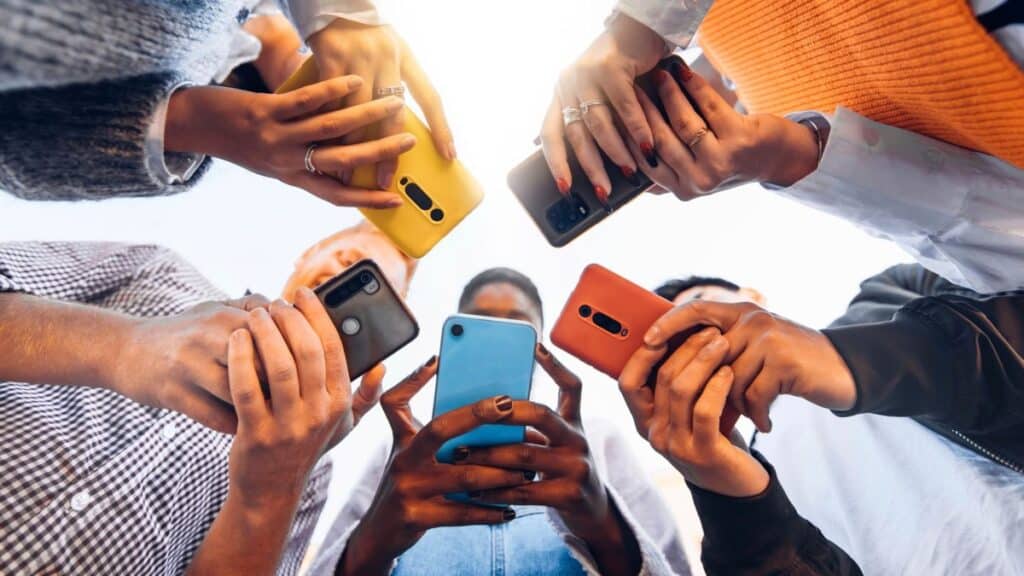Living in a digital world can be as empowering as it can be overwhelming. While technology offers incredible benefits, like ease and accessibility, it can also interfere with our mental well-being. It’s very easy nowadays to get sucked into the endless scroll, the constant notifications, and the feeling that we always need to be plugged in and connected. It’s integral to find a healthy balance between your online life and offline happiness. Let’s explore the connection between mental health and technology and, more importantly, how to prevent digital addiction.
The Impact of Technology on Mental Health
Technology isn’t inherently bad. It’s all about how we use it. When used in moderation, it can socialize and educate people and even provide mental health support. But excessive use can also have a detrimental effect on your lifestyle, including:
- Mental health disorders: Constantly comparing yourself to others online, developing fear of missing out (FOMO), and being the victim of cyberbullying can significantly contribute to anxiety and depression.
- Less sleep: The blue light from cell phones interferes with melatonin production, making it harder to fall asleep and impacting sleep quality.
- Shorter attention span: The constant influx of information and notifications trains our brains to crave instant gratification, shortening our attention spans and making it difficult to focus on tasks.
- No face-to-face interaction: Ironically, while technology connects us virtually, it can also lead to feelings of isolation and loneliness when it replaces real-life interactions.
- High-stress levels: The pressure to be constantly available and responsive, coupled with the addictive nature of technology, can lead to chronic stress.
Understanding the Signs of Digital Addiction
Digital addiction can manifest in different ways. Here are some signs that time spent online is becoming problematic:
- Spending more time than intended online: are you aimlessly scrolling through Reels or TikToks when you meant to check one thing?
- Difficulty disconnecting or withdrawal symptoms: do you feel anxious or irritable when you put the computer or phone down? Are you itching to check them for any notifications seconds after you leave them?
- Decreased productivity and performance: are you struggling to focus on your work or studies because of constant distractions?
- Physical symptoms: are you experiencing eye strain or headaches if you take a break from using your devices?
- Neglecting relationships and real-life obligations: are you ignoring your responsibilities or missing deadlines, whether at work or at home? Are you interacting with family and friends less often?
If you answered yes to any of these questions, you may be experiencing digital addiction.
10 Tips to Protect Your Mental Health In the Digital Age
Understanding how to maintain your mental health and curb digital addiction is vital. Thankfully, taking a few simple measures can help navigate your online consumption.
- Track Your Usage: Knowledge is power. Use built-in phone features or apps to monitor your screen time. Seeing the numbers can be a real eye-opener.
- Set Time Limits and Boundaries: Establish daily or weekly limits for specific apps or activities. Use app timers or other tools to help you stick to your goals and make sure you go online with intention.
- Create Tech-Free Zones and Times: Designate areas (bedroom, dining room) and times (mealtimes, before bed) as tech-free. This will help you unplug and be more present in the moment.
- Turn Off Notifications (or Manage Them): Disable non-essential notifications to reduce distractions and the constant urge to check your phone. Customize notification settings for important apps so you’re only alerted to what truly matters.
- Curate Your Online Experience: Unfollow accounts that trigger negative feelings or comparison. Focus on positive and uplifting content that inspires and motivates you.
- Engage in Offline Activities and Hobbies: Rediscover hobbies, spend time with loved ones, or get outdoors. Make time for activities that bring you joy and help you relax. Try to leave your phone at home.
- Practice Mindfulness and Digital Detoxing: Mindfulness can be achieved through meditation. You can meditate daily or schedule regular “digital detox” periods to give your mind a break from constant stimulation.
- Prioritize Sleep Hygiene: Avoid screens at least an hour before bed. Create a relaxing bedtime routine to promote restful sleep.
- Seek Support When Needed: Don’t hesitate to talk to a therapist, counselor, or support group if you’re struggling with digital addiction. If you need additional support, a neuropsychological evaluation may be just the thing you need.
- Be Patient and Kind to Yourself: Changing habits takes time and effort. Be patient with yourself, celebrate small victories, and don’t get discouraged by setbacks.

